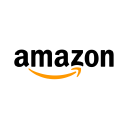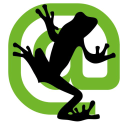What I Learned Building A Coupon Codes Website [$2K/Month Profit]
My name is Oleg Segal, and I am the founder of DealA.com. My site helps people to save money when shopping online.
It’s been more than three years since I founded DealA, a coupon codes website that helps users save money when they shop online. It’s still in a negative ROI, with the total spent exceeding $250,000 and an average monthly profit of just $2000.
I reflected a lot in the last couple of months on how I’d do it if I started from scratch, and in this story, I’d like to share my thoughts with you so you don’t repeat my mistakes.
First and foremost, you never know what will work and what won’t. Always do quick tests, no matter how successful you are with past projects.

What's your backstory and how did you come up with the idea?
Since I was an 8y.o. kid, I was spending a lot of time in front of my computer. Not only playing games, but also learning how the...

Download the report and join our email newsletter packed with business ideas and money-making opportunities, backed by real-life case studies.

Download the report and join our email newsletter packed with business ideas and money-making opportunities, backed by real-life case studies.

Download the report and join our email newsletter packed with business ideas and money-making opportunities, backed by real-life case studies.

Download the report and join our email newsletter packed with business ideas and money-making opportunities, backed by real-life case studies.

Download the report and join our email newsletter packed with business ideas and money-making opportunities, backed by real-life case studies.

Download the report and join our email newsletter packed with business ideas and money-making opportunities, backed by real-life case studies.

Download the report and join our email newsletter packed with business ideas and money-making opportunities, backed by real-life case studies.

Download the report and join our email newsletter packed with business ideas and money-making opportunities, backed by real-life case studies.





























